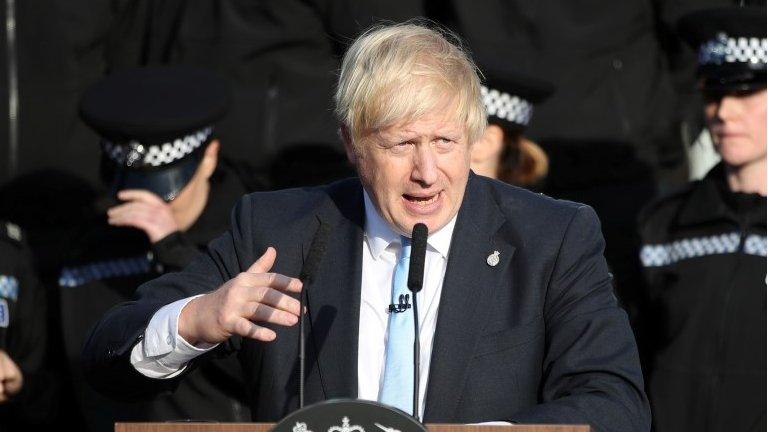Brexit's most important week? Five things that happened on Friday
- Published
It's been a tumultuous week for Boris Johnson and there was little respite on Friday, with further Brexit headaches for the prime minister.
Mr Johnson has been on an away day to a farm in Aberdeenshire but, back in London, the House of Lords and the opposition continue to do their upmost to thwart his strategy.
Elsewhere, among the day's other headlines, there was a silver lining for the PM at the High Court but eyebrows were raised over his choice of language to describe his predecessor.
1) No-deal bill clears Parliament
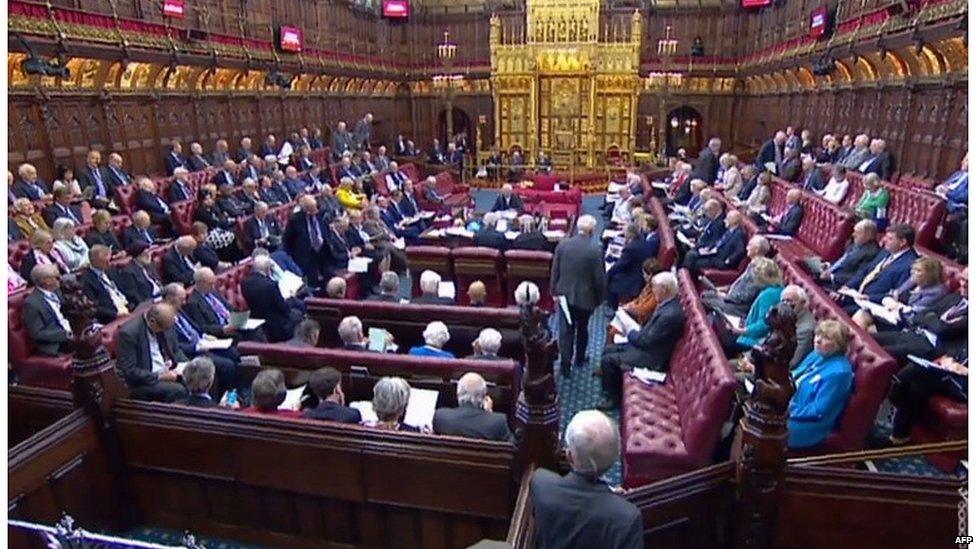
Parliament has spent the week attempting to pass a bill preventing a no-deal Brexit on 31 October - and today they succeeded.
The law requires the prime minister to extend the exit deadline to the end of January unless Parliament has agreed a deal with the EU by 19 October.
On Tuesday, the bill, known as the Benn bill after Labour MP Hilary Benn, passed through the Commons.
It then went to the Lords, where it passed on Friday after Brexit-supporting peers dropped their opposition to it.
There had been suggestions that the government would stop the bill being signed into law by the Queen, but it is set to receive what is known as Royal Assent in the coming days.
The PM has repeatedly said he will not agree to a Brexit extension, suggesting he would rather "die in a ditch". It remains to be seen how this particular circle will be squared.
2) Opposition parties refuse election (again)
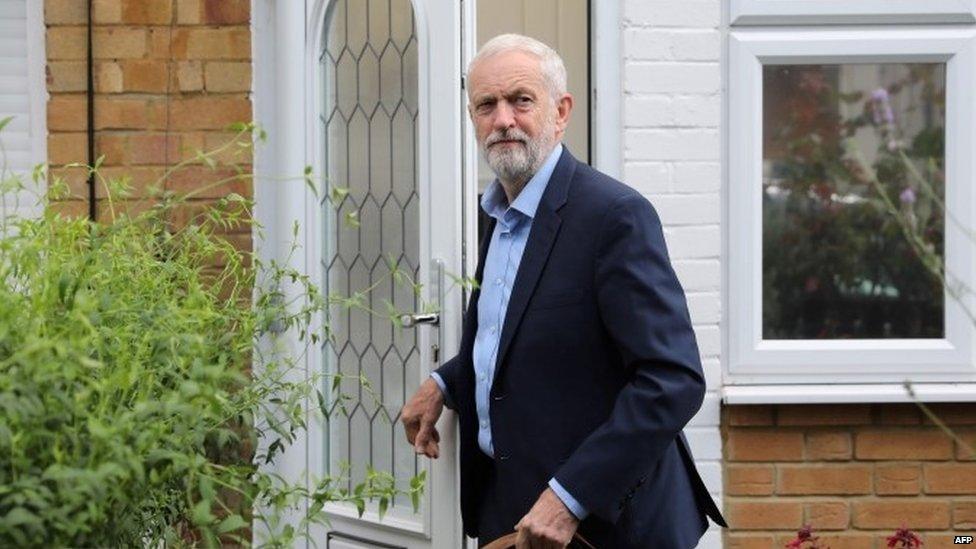
Faced with the prospect of having to ask for more time from Brussels, Mr Johnson desperately wants to call an early general election to strengthen his hand.
But under the terms of the Fixed Term Parliaments Act, this requires two-thirds of MPs to vote for it, and the prime minister needs the support of some opposition MPs.
Labour, the Lib Dems and the SNP withheld their support when it was put to the vote on Wednesday and have now agreed to do the same when the PM tries again on Monday.
They say that any election before the 31 October deadline could give a newly-re-elected Mr Johnson the ability to pursue a no-deal Brexit.
They say a Brexit extension must be officially secured at the 17 October summit before an early election can take place, to avoid Mr Johnson ignoring the bill's provisions.
3) Campaigners lose court case against prorogation
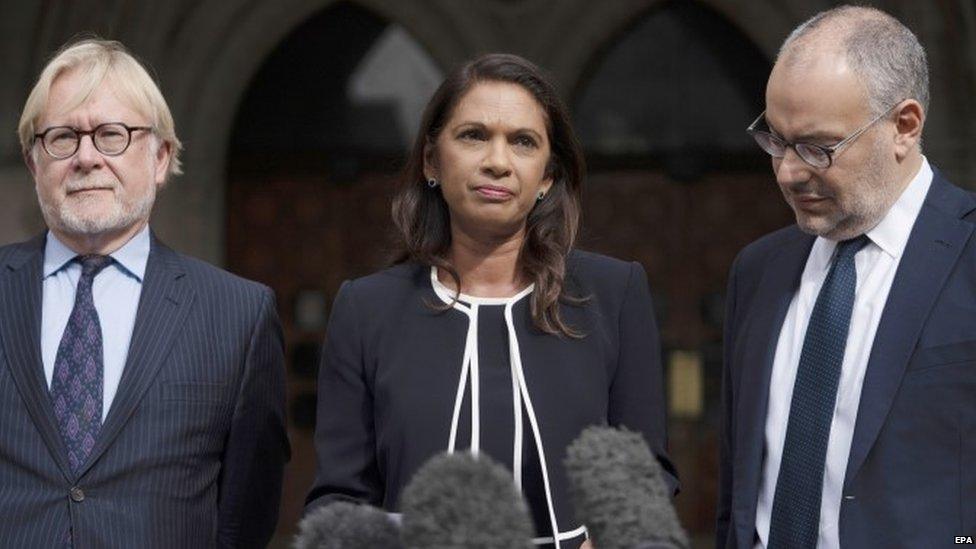
There was some better news for the prime minister - who spent most of the day campaigning in Scotland.
The High Court ruled that his decision to suspend, or prorogue, Parliament was lawful.
Opponents of the move, including former prime minister John Major and anti-Brexit businesswoman Gina Miller, had argued that the reasons for prorogation given to the Queen by the PM were untrue and the prorogation would break the principle of parliamentary sovereignty.
The court dismissed the case but did give the claimants the right to seek a judicial review.
Today's ruling means prorogation is likely to go ahead next week, with Parliament closed until the Queen's Speech on 14 October.
4) Johnson in trouble over police speech
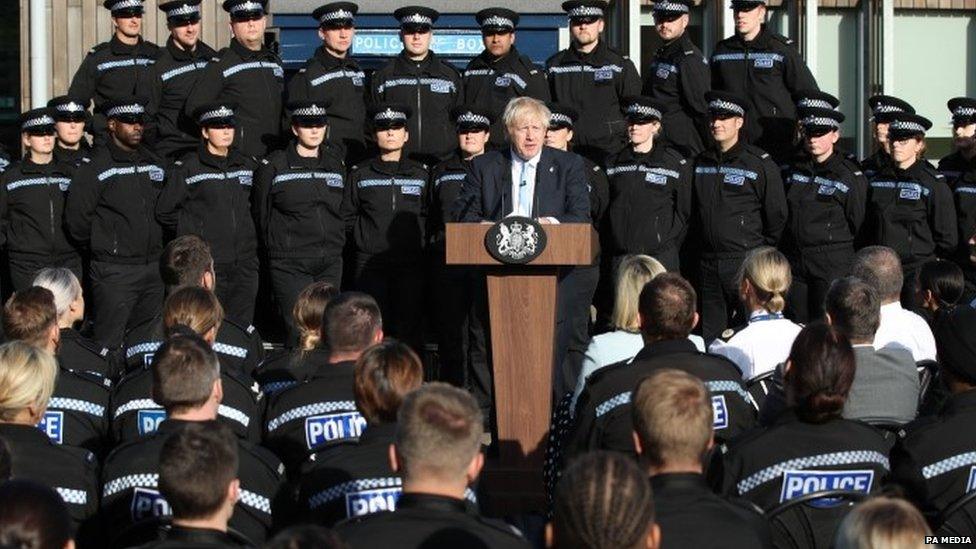
A speech given by the prime minister on Thursday in front of a crowd of police recruits has continued to create waves.
Chief Constable John Robins of West Yorkshire Police said he had understood the speech would be solely about police officer recruitment and he was "disappointed" his officers were used as a backdrop as Mr Johnson spoke about Brexit.
Labour MP Yvette Cooper, chair of the Home Affairs Select Committee, sought to up the ante by writing to the cabinet secretary about the issue.
The PM, she said, had "serious questions" to answer about how he had given an essentially political speech at a police event, given the police are supposed to be impartial.
5) PM calls predecessor a 'girly swot'
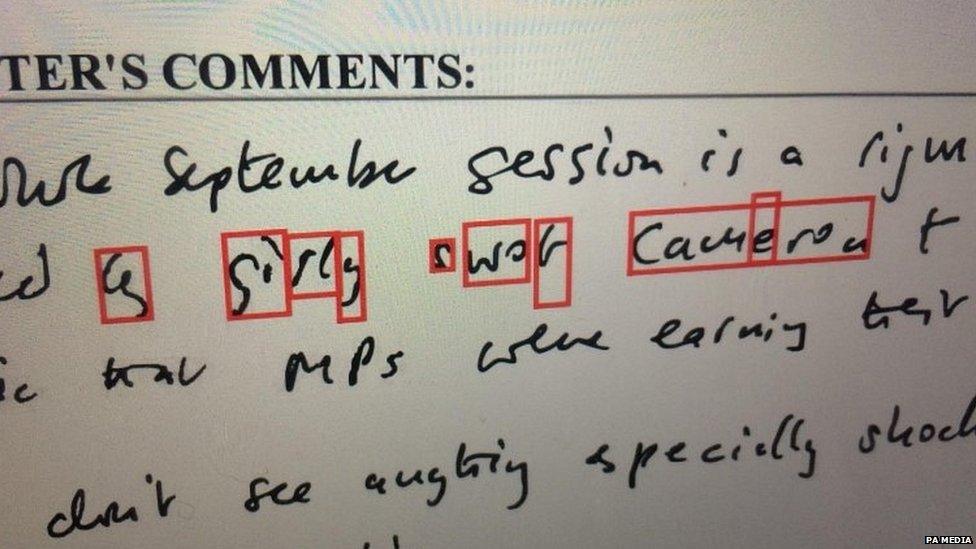
Boris Johnson and David Cameron have a lot in common, the same school, the same university, the same job and, these days, the same European headaches.
The two men have long been considered rivals but, the joshing and ribbing aside, we rarely get a glimpse of what they actually think of each other.
Hopefully we'll learn a bit more when the former prime minister publishes his long-awaited memoirs next month.
But, as for Mr Johnson, we've now learnt that he described Mr Cameron as a "girly swot" for agreeing when he was PM to allow the Commons to sit for longer hours in September.
We've got Sky's deputy political editor Samuel Coates to thank for this choice nugget, external - drawn from cabinet papers disclosed to the High Court as part of a judicial review of the PM's decision to suspend, or prorogue, Parliament for five weeks.
Mr Johnson, who earlier this week called Jeremy Corbyn a "big girl's blouse" for blocking an election, has come under fire for his choice of language - with one commentator saying the UK was "being governed by a nine-year old".
- Published5 September 2019
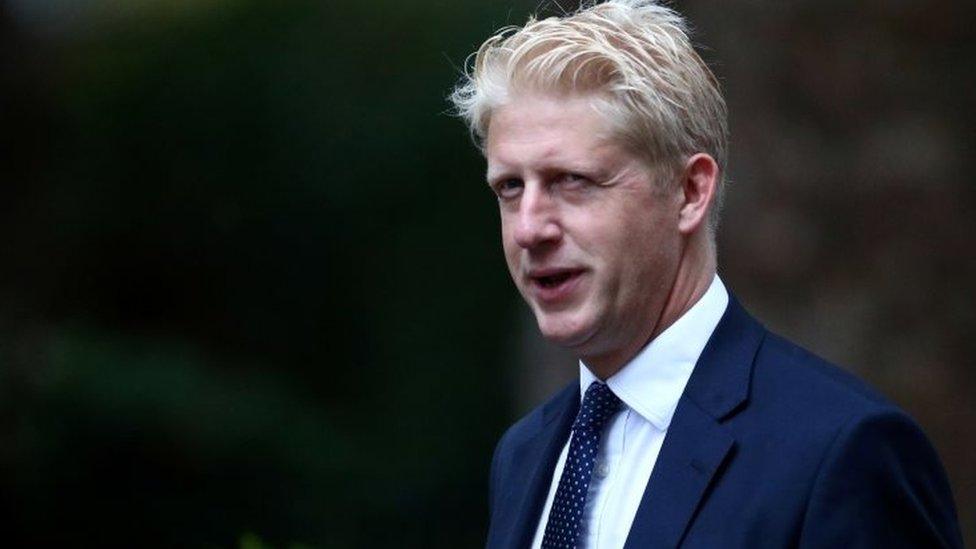
- Published5 September 2019
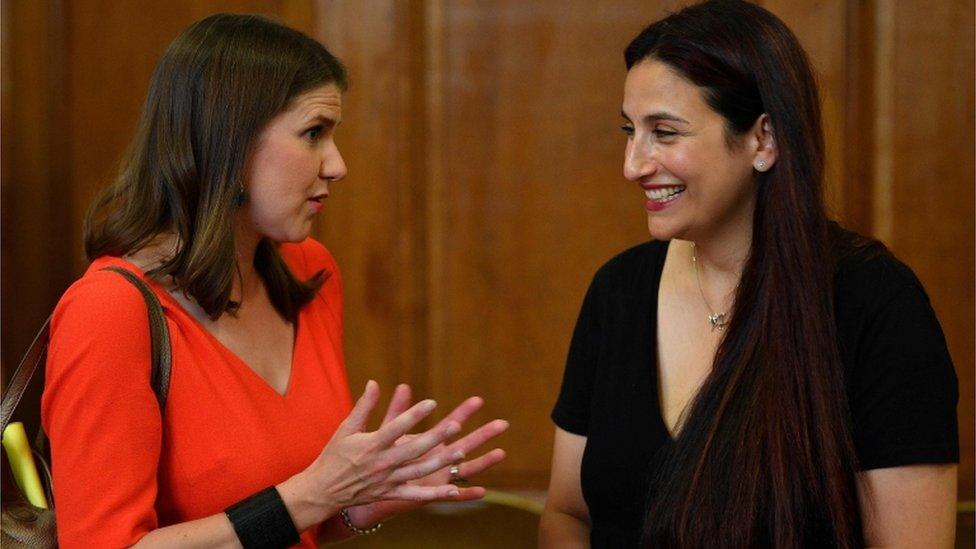
- Published5 September 2019
